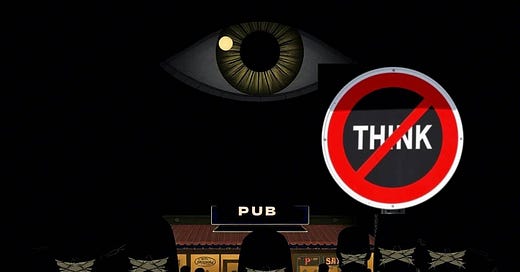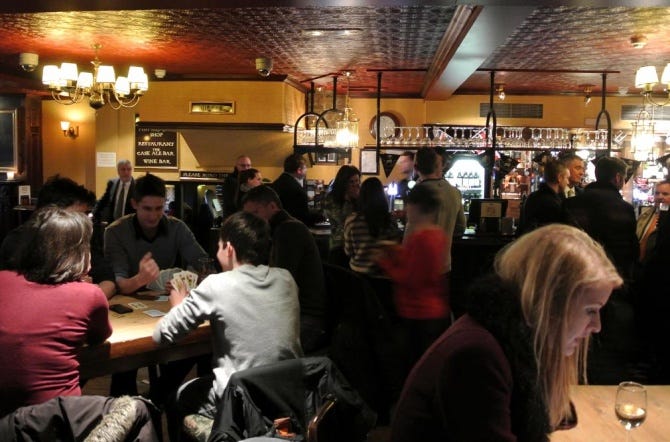It's becoming increasingly clear how individual freedoms seem to be under constant siege. In the context of the 2030 Agenda, which suggests that "you will own nothing and be happy," restrictions on freedoms are becoming increasingly evident. In this regard, several countries in the European Union, where democracy appears to reign, are passing laws that censor even what one thinks.
Thus, the governments of Germany, the United Kingdom, and Spain are adopting measures that could mark a turning point in the relationship between the state and its citizens. Through initiatives that promote mutual surveillance and the censorship of dissenting opinions, these countries are normalizing practices that are eminently reminiscent of authoritarian regimes of the past. This time, the pretext is not political ideology or war, but the fight against disinformation, conspiracy theories, and harassment in public spaces.
It's curious to observe how governments try to impose laws against disinformation when they are the first to misinform their citizens. These laws aim to ensure that there is only one discourse: the official one. Any dissenting opinion must be silenced, even if supported by compelling scientific evidence about the contents of vaccines and other injectables.
However, behind these justifications lies a much darker reality: the growing repression of dissent and the imposition of a New World Order.
Germany: The Compass of Right Thinking
The German government1 recently launched the "Compass Counseling on Conspiracy Thinking" project, an initiative spearheaded by the Ministry of the Interior under the direction of Nancy Faeser and supported by the Federal Ministry for Family Affairs, Senior Citizens, Women, and Youth. This program seeks to offer counseling to citizens who suspect that their friends or relatives have fallen prey to conspiracy theories. According to authorities, this "holistic" effort aims to protect democracy and combat extremism.
However, the true nature of this initiative is far more disturbing. The government is actively encouraging citizens to monitor and report their loved ones if they detect "suspicious" behavior, such as social isolation, obsessive sharing of conspiracy content, or rejection of mainstream journalism. This type of internal surveillance evokes echoes of Nazi Germany and occupied Europe during World War II, when neighbors were incentivized to report those they considered traitors or enemies of the regime.
Most alarmingly, the government does not clearly specify what criteria will be used to determine what constitutes "incorrect thinking." What happens if someone simply questions government policies? Or if they express doubts about the official narrative of the COVID-19 pandemic, now widely questioned following revelations about the absence of a virus and the presence of graphene? This legal loophole opens the door to arbitrariness and abuse of power, turning what should be a guidance service into a tool of social control.
Among the German government's concerns, there is a strong association between conspiracy theories and the Querdenker (lateral thinking) movement, which emerged during the COVID-19 pandemic in opposition to government measures. Let's observe how they persist in the discourse surrounding the pandemic, despite the fact that it has been proven since 2021 that there is no real virus, but rather the presence of graphene. Governments, trying to cover up the graphene-related agenda, launch campaigns like this to divert attention from the truth. However, it is already too late; a large part of the population has become aware of the reality.
The similarities with the past are inevitable. During World War II, totalitarian regimes encouraged denunciation among citizens to identify dissidents, Jews, communists, or other marginalized groups. Today, although the language is different, the mechanism is the same: sowing distrust between families and communities, weakening social ties, continuing to divide human beings, and consolidating state power.
United Kingdom: Silencing Conversations in Bars and Pubs
Meanwhile, across the Channel, the UK Labour government is pushing2 a bill that could ban certain conversations in bars and pubs. The Employment Rights Bill's provisions mean the 2010 Equality Act will be updated to hold employers liable if their staff are offended by third parties, such as customers or members of the public.
Under this legislation, any discussion that could be construed as "unwelcome conduct" or that creates an "intimidating, hostile, degrading, humiliating, or offensive" environment could be classified as harassment. This includes discussions about pandemics, religion, women's rights, transgender people, political philosophies, wars, and even ethical veganism.
Pub and bar owners are forced to act as "snitches" for the police, monitoring their customers' private conversations to avoid potential fines or sanctions. This measure not only violates freedom of expression but also undermines one of the last bastions of free social interaction: the British pub. As Nigel Farage, leader of Reform UK, noted, "If we can't go to the pub for a pint and talk about whatever we want, there's almost no point in going."
This attempt to censor everyday conversations is part of a global trend toward the homogenization of thought. As in Germany, the British government uses fear of conflict and discrimination as an excuse to impose draconian restrictions. But rather than encouraging open and respectful dialogue, these policies breed self-censorship and polarization.
Spain Introduces Law to Silence Dissenting Voices
For its part, the Spanish government has taken a step that many consider disturbing. Under the pretext of combating fake news and hoaxes, the Council of Ministers recently approved a draft law3 that expands the Right to Rectification not only to traditional media outlets, but also to digital influencers and users with a significant presence on social media.
The new legislation, presented as a measure to "promote greater quality in public debate," according to Minister Félix Bolaños, includes alarming provisions that could serve as a tool for state control over any critical or dissenting voice. One of the most controversial points is the inclusion of relevant social media users—defined as those with more than 100,000 followers on a platform or 200,000 in total—who can now be taken to court for posting information considered false or inaccurate, from the official perspective.
Considering graphene and graphene-based nanotechnology, observable under a microscope, as a hoax by governments clearly reveals the intention behind the imposition of laws around the world: to prevent the truth from being known.
Furthermore, this law extends the right to rectification to relatives of deceased individuals, raising questions about its true scope. Could it be used to rewrite historical narratives or erase post-mortem criticism? The ambiguity of this point leaves room for abusive interpretations.
Critics of the law warn that this measure could have a direct impact on freedom of expression, especially on platforms like Twitter, Facebook, and Instagram, where millions of citizens share opinions daily. By defining who has the right to correct and what constitutes a "lie," the state assumes disproportionate power to decide which thoughts are acceptable and which should be eliminated from public debate.
The question that remains is: to what extent are we willing to sacrifice our freedom in the name of the official truth? Spain seems to be charting a worrying path toward the exhaustive regulation of dissent, using the fight against disinformation as a smokescreen.
Meanwhile, citizens watch as our voices, once free in the vastness of the internet, begin to be monitored and silenced under the relentless eye of the state.
Historical Parallels
These initiatives have a common denominator: mutual surveillance and the repression of dissident thought. In Nazi Germany, programs like the Gestapo relied heavily on citizen collaboration to identify and eliminate enemies of the regime. Neighbors would denounce each other for reasons as trivial as criticizing the Führer or helping Jews. Exactly the same thing happened in Stalin's Russia. Today, although the context is different, the psychological mechanism is identical: to create a society where no one dares to think or speak outside the established boundaries.
These policies are part of a broader global agenda known as the New World Order. Its ultimate goal is to consolidate absolute control over the population through the manipulation of information, the suppression of dissent, and the promotion of uniform thinking. Conspiracy theories, far from being mere fringe ideas, represent a threat to this agenda because they expose uncomfortable truths, such as the fake COVID-19 pandemic or the hidden graphene agenda.
The initiatives in Germany, the United Kingdom, and Spain are clear warnings that individual freedom is slowly being eroded under the pretext of protecting democracy and promoting equality. But history teaches us that when citizens allow the state to control their thoughts and words, the result is always the same: oppression and the loss of fundamental rights.
It's time to wake up. We must resist these measures first. Only then can we preserve our freedoms and prevent humanity's dark past from repeating itself in a new form. The question is: are we willing to fight for our future?









agree and very worrying , only point is far.....age is a long time uk security services asset. his role to keep the suspicious inactive. " he will deal with it, I don't have to do anything " . imo no one is waking up. there are the original dissenters increasing their own knowledge. people not curious in the beginning were already taken by the state.
Strawman Government Scam🚨This Applies To The ENTIRE World – Deborah Tavares
https://darrellhines.net/2025/03/13/%f0%9f%9a%a8strawman-government-scam%f0%9f%9a%a8this-applies-to-the-entire-world-deborah-tavares/